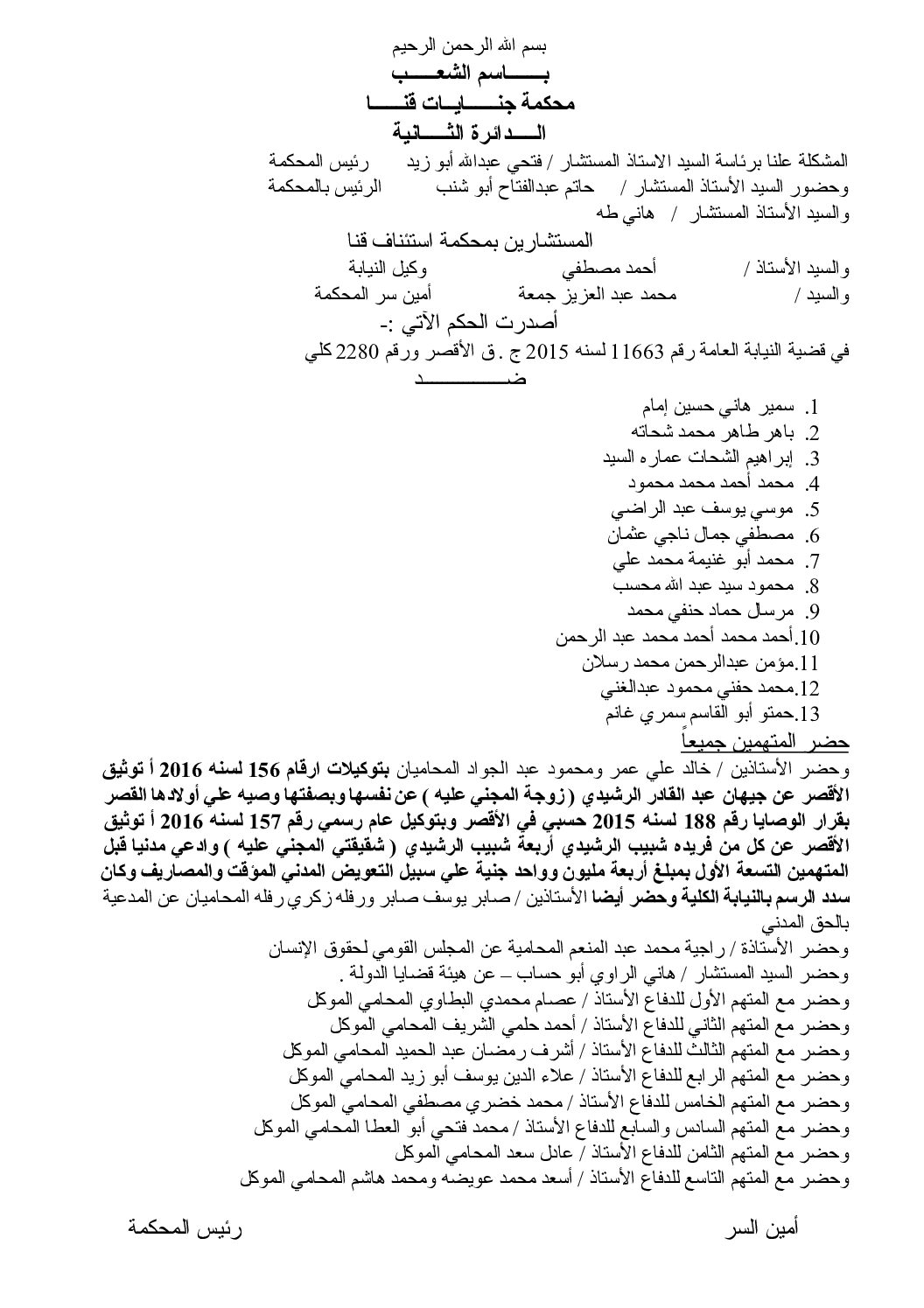Drop Egypt’s Debt Campaign: Statement on the Resumption of Negotiations with the IMF
Popular Campaign to Drop Egypt’s Debt
They Will not Make a Deal Over our Bread and Blood
Once more, the International Monetary Fund (IMF) will return to Cairo today [Wednesday 4 April 2013] to resume negotiations on the promised loan. The IMF will return to decide on our health, food, drink, education, and income, without us being a part of the negotiations or even knowing what goes on in the meetings.
IMF’s visit this time comes a few days after the doubling of the price of cooking gas bottles and daily electrical cuts. They are merely part of a package of unfair and deep austerity measures, which will lift energy subsidies, at the expense of the poorest and most marginalized segments of society.
At the same time, the Muslim Brotherhood (MB) government is restoring friendly relations with corrupt figures of the Mubarak era and keeps supporting big businessmen, under the pretext of reassuring a few investors in the country and abroad.
Social anger in the Egyptian streets blocked the primary agreement with the IMF, reached earlier this year. Overnight, the government was forced to freeze taxes that were hostile to regular Egyptian consumers, after being issued through a presidential decree. Young people stood up to this decision in the various Egyptian cities, alongside strikes and social protests that are spreading day by day, rejecting the dictates of the IMF and its allies in the country.
However, the US is exerting pressure to set the course of Egyptian economic policy, so as not to conflict with the internal and external interests that were in control during the previous regime. This pressure aims to establish a new round of negotiations on setting a date for the reintroduction of the policies rejected by the Egyptians and goes as far as promising to raise the amount of the 4.8 billion US Dollar loan announced some time ago.
IMF and International Financial Institution (IFIs) loans will not lead us out of the economic impasse. The agenda the IMF demands from the government threatens poor Egyptians with more poverty and want. The proposed changes, whether in slapping a Value Added Tax (VAT) on basic goods or causing the Egyptian Pound to fall in value, are further evidence that the IMF is biased towards the rich against the poor and wants to keep Egypt’s economy shackled with debt, whose service already eats up 30% of the country’s yearly budget.
We are radically opposed to those who say that Egypt needs to choose the best austerity policy available and that we have no other alternative than to take the IMF loan. We reiterate our position that before taking external loans, the ills of the Egyptian economy need a thorough examination, especially policies that allowed the emergence of a new elite close to the MB and the unacceptable degree of convergence between businessmen and army generals.
We believe that alternative policies do exist, different than those proposed by the current socio-economic regime. We also believe that we do have the political resources that can achieve them.
The moment IMF representatives arrive to Egypt, the streets and universities will erupt in anger and protest against the continuation of the same policies of the overthrown regime. Keeping the regime from copying old policies and calling for a decent living for farmers, workers, craftspersons, and other poor Egyptians, as well as producers, in addition to their struggle for justice in work and livelihood is what allowed us to continue the revolution and effectively prevented, until this moment, a deal between our rulers in the presidential palace and the rulers of bread in International Financial Institutions. It is the only guarantee to achieving the goals of the revolution in decent living and social justice.
Down with the poverty loan!

